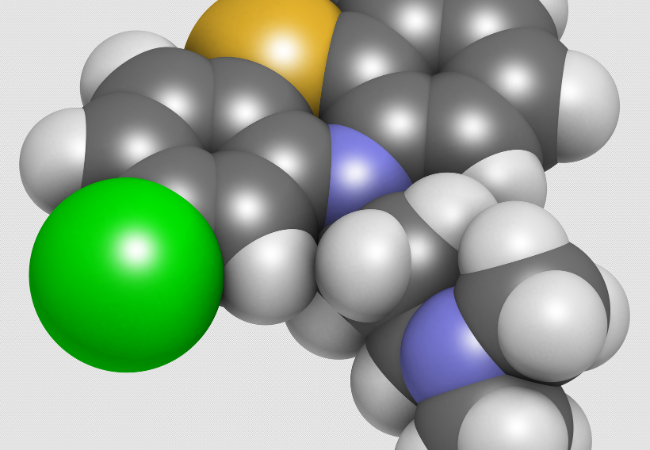The word “Atypical Antipsychotics” may sound complex and complicated in the context of mental health. But do not worry, my dear readers, as we set out to solve the mysteries behind these unusual drugs.
This page is intended to give you a thorough grasp of atypical antipsychotics, whether you’re a curious student or a teacher seeking to expand your knowledge. Come along with us as we walk you through 25 informative instances and discuss their significance in the field of mental health.
Atypical antipsychotics: Mechanism of Action
The Mechanism of Atypical Antipsychotics is explained in two points:

- Atypical antipsychotics are a class of drugs that have a unique mechanism of action. They act as master keys by binding to multiple receptors in the brain, such as serotonin and dopamine receptors. This results in a more balanced chemical environment, which can help alleviate symptoms of mental illness.
- By opening up these receptors, atypical antipsychotics can help regulate the levels of neurotransmitters in the brain, which can improve mood, behavior, and cognition. Understanding the mechanism of action of these drugs is important for patients and healthcare providers alike, as it can help inform treatment decisions and lead to better outcomes.
Examples of Atypical Antipsychotics
The examples of Atypical Antipsychotics are deeply explained in given below,
A Beacon of Hope:
Aripiprazole (Abilify) Aripiprazole, often known by its brand name Abilify, stands as a beacon of hope for those navigating the tumultuous waters of bipolar disorder. It’s a versatile medication known for its mood-stabilizing properties. For individuals grappling with the intense swings between manic and depressive episodes, Abilify offers a sense of balance and control they might have thought was lost forever.
Olanzapine (Zyprexa):
Restoring Clarity Amidst Schizophrenia Olanzapine, marketed as Zyprexa, is a powerful ally in the fight against schizophrenia. This atypical antipsychotic helps individuals regain clarity amidst the chaos of delusions and hallucinations. With Zyprexa, life becomes more manageable, and the world starts to make sense once again.
Quetiapine (Seroquel):
Easing the Nightmares of Anxiety and Insomnia Quetiapine, sold under the brand name Seroquel, is renowned for its calming effect. It extends a compassionate hand to those who wrestle with relentless anxiety and insomnia. The tranquility it brings allows individuals to experience a respite from their mental struggles, even in the darkest hours of the night.
Risperidone (Risperdal):
Restoring Connection in the Face of Schizophrenia Risperidone, commonly known as Risperdal, is a medication that fosters reconnection. For individuals with schizophrenia, this atypical antipsychotic mutes the cacophony of voices and brings back a sense of self. It’s a step towards rebuilding relationships and forging connections that were strained by the disorder’s grip.
Lurasidone (Latuda):
The Gentle Touch for Bipolar Depression Lurasidone, under its brand name Latuda, provides a gentle touch to the treatment of bipolar depression. It’s not just about managing the highs and lows but also about maintaining emotional equilibrium. With Latuda, individuals can navigate the rollercoaster of bipolar disorder with greater grace and poise.

Paliperidone (Invega):
Nurturing Hope for Schizophrenia Paliperidone, marketed as Invega, is a nurturing presence in the lives of those with schizophrenia. It alleviates the torment of relentless symptoms, allowing individuals to rekindle their hopes and dreams. Invega is a bridge from the shadows of the illness to a brighter future.
Clozapine (Clozaril):
A Last Resort, A Lasting Hope Clozapine, often considered a last resort, is a beacon of hope for those who haven’t found relief with other treatments. It’s a medication that says, “There’s still a way.” Clozaril offers a chance at a life free from the relentless grip of schizophrenia’s symptoms, no matter how stubborn they may be.
Asenapine (Saphris):
Calming the Restless Minds Asenapine, sold as Saphris, is an underappreciated gem in the field of antipsychotic medications. It extends a soothing touch to the restless minds of individuals with schizophrenia and bipolar disorder. In the midst of chaos, Saphris creates an oasis of calm.
Iloperidone (Fanapt):
Guiding Through the Tumultuous Seas of Schizophrenia Iloperidone stands as a steadfast guide for individuals navigating the tumultuous seas of schizophrenia. This atypical antipsychotic offers a sense of direction when the world feels chaotic and overwhelming. Fanapt’s support paves the way for calmer waters and smoother sailing.
Ziprasidone (Geodon):
Swift Relief in Times of Crisis Ziprasidone, or Geodon, is known for its rapid onset of action. It provides swift relief during acute episodes of mania or psychosis. When individuals are in crisis, Geodon steps in as a stabilizing force, offering a chance to regain control.
Brexpiprazole (Rexulti):
A Partner in the Battle Against Depression and Schizophrenia Brexpiprazole, marketed as Rexulti, is a trusted partner in the battle against depression and schizophrenia. It complements traditional antidepressants, addressing both the emotional lows and the psychotic symptoms. With Rexulti, individuals find a more comprehensive path to recovery.
Cariprazine (Vraylar):
Balancing the Bipolar Scales Cariprazine, known as Vraylar, is a master at balancing the scales of bipolar disorder. It addresses both manic and depressive aspects of the illness, helping individuals find stability and peace. Vraylar is a beacon of hope for those seeking equilibrium in the midst of emotional turbulence.
Blonanserin (Lonasen):
Easing Persistent Delusions and Hallucinations Blonanserin, often overlooked, possesses remarkable efficacy in managing persistent delusions and hallucinations. For individuals grappling with these distressing symptoms, Lonasen extends a hand of relief and a glimmer of hope.
Amisulpride (Solian):
Embracing Clarity in the Midst of Schizophrenia Amisulpride, sold under the name Solian, provides an embracing clarity for individuals facing the bewildering challenges of schizophrenia. It helps individuals regain their sense of self and purpose, even in the face of adversity.
Pimavanserin (Nuplazid):
A Ray of Hope for Parkinson’s Disease Psychosis Pimavanserin, known as Nuplazid, is a ray of hope for those dealing with Parkinson’s disease psychosis. It addresses the unique challenges that come with this condition, offering a chance to experience a life less burdened by hallucinations and delusions.
Aripiprazole Lauroxil (Aristada):
Prolonged Relief for Schizophrenia Aristada, the extended-release form of aripiprazole, ensures prolonged relief for individuals managing schizophrenia. With fewer injections, it offers the freedom to focus on one’s journey to recovery.

Blonanserin (Lonasen):
A Second Mention for Exceptional Efficacy Blonanserin, Lonasen, deserves a second mention for its exceptional efficacy in managing schizophrenia symptoms. It’s a testament to the positive impact this atypical antipsychotic has on those who need it most.
Iloperidone (Fanapt):
Extending Support to Schizoaffective Disorder Iloperidone’s soothing touch isn’t limited to schizophrenia alone. It extends its support to individuals dealing with schizoaffective disorder, providing relief from the dual challenges they face.
Risperidone (Risperdal Consta):
Sustained Support for Schizophrenia Risperidone, in its extended-release form known as Risperdal Consta, offers sustained support for individuals with schizophrenia. It ensures consistent relief, helping individuals build a stable foundation for their lives.
Paliperidone (Invega Sustenna):
Long-Term Stability for Schizophrenia Paliperidone, in its long-acting form known as Invega Sustenna, fosters long-term stability and recovery for those with schizophrenia. It’s a continuous source of support on the path to healing.
Lurasidone (Latuda):
Gentle Effectiveness in Schizophrenia Latuda’s gentle effectiveness isn’t limited to bipolar depression; it extends its reach to the treatment of schizophrenia as well. It’s a versatile ally in the journey toward mental wellness.
Aripiprazole (Aristada):
Uninterrupted Support for Schizophrenia Aristada, the extended-release form of aripiprazole, offers uninterrupted support for individuals managing schizophrenia. With fewer interruptions, it provides the consistency needed for recovery.
Brexpiprazole (Rexulti):
Enhancing Depression Treatment with Traditional Antidepressants Rexulti enhances depression treatment by partnering with traditional antidepressants. It broadens the scope of care, addressing the multifaceted nature of depression.
Olanzapine (Zyprexa Relprevv):
Consistent Relief for Schizophrenia Olanzapine, in its long-acting form as Zyprexa Relprevv, offers consistent relief for individuals managing schizophrenia. It stands as a steadfast ally in the ongoing battle for mental wellness.
Cariprazine (Vraylar):
Equilibrium Amidst Bipolar Disorder Vraylar’s unique ability to address both the manic and depressive aspects of bipolar disorder empowers individuals to find balance and peace. It’s a beacon of hope in the turbulent sea of emotions.
Atypical antipsychotic side effects
Like all medicines, atypical antipsychotics can have some negative effects. It is essential to be informed of these potential disadvantages. Weight gain, sleepiness, and metabolic abnormalities are typical adverse effects. However because these consequences differ from person to person, medical professionals can offer appropriate management assistance.

Role of Atypical Antipsychotics in Therapy
Atypical antipsychotics are a crucial component in the field of therapy, especially for individuals struggling with mental health issues. They are frequently combined with psychotherapy to deliver a comprehensive and holistic approach to treatment.
These medications are known for their unique pharmacological mechanisms and can effectively alleviate various symptoms of mental disorders, such as hallucinations, delusions, and mood swings. With their assistance, patients can better manage their mental health and improve their overall quality of life.
Key Points:
Atypical antipsychotics are invaluable tools in the realm of mental health, offering a ray of hope to those in need. They have the power to transform lives, and as we look toward the future, the promise of even more effective treatments holds immense potential. So, students and educators, embrace the world of atypical antipsychotics with curiosity and compassion, and together, let’s continue to shed light on the path to mental well-being.
FAQS
What are Atypical Antipsychotics, and how do they differ from typical ones?
Atypical antipsychotics are a class of medications used to treat conditions like schizophrenia, bipolar disorder, and depression. What sets them apart is their broader range of action on neurotransmitters, resulting in fewer motor side effects compared to typical antipsychotics.
What conditions do Atypical Antipsychotics treat?
Atypical antipsychotics are versatile and can effectively manage various mental health conditions, including schizophrenia, bipolar disorder, and severe depression. They’re also used in some cases to augment treatment for anxiety disorders.
Are there any age restrictions for using Atypical Antipsychotics?
While atypical antipsychotics can be prescribed to individuals of different ages, special considerations apply to children, the elderly, and pregnant individuals. The decision to use them should be made in consultation with a healthcare provider.
What are the most common side effects, and how can they be managed?
Common side effects of atypical antipsychotics include weight gain, drowsiness, and metabolic changes. Monitoring, lifestyle adjustments, and medication switches under the guidance of a healthcare professional can help manage these effects effectively.
Can Atypical Antipsychotics be used alongside other medications?
Yes, atypical antipsychotics can be used alongside other medications, depending on the individual’s condition and the healthcare provider’s recommendations. Combining treatments may offer a more comprehensive approach to managing mental health conditions.

